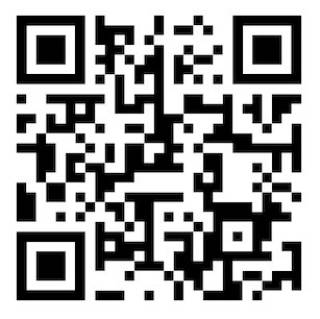INTRODUCTION
The NHS in England considers it a priority to provide high-quality evidence-based psychological interventions to individuals diagnosed with severe mental illnesses such as psychosis bipolar disorder eating disorders and personality disorders. Cognitive behavioural therapy (CBT) has been shown to be effective in helping individuals develop the skills necessary to manage these issues and rebuild their lives.
However one of the challenges has been increasing the number of practitioners who can deliver these interventions. To address this NHS England has developed a long-term strategy to increase the number of nationally commissioned Postgraduate CBT in Severe Mental Health Problems (SMHP) training places. This will enable the NHS workforce to significantly increase the provision of CBT for SMHP over the next 5 years.
The postgraduate diploma and certificate programmes offered provide practitioners with the skills necessary to deliver high-quality CBT interventions to individuals experiencing severe mental health problems. These programmes are Level 2 accredited with the British Association of Behavioural and Cognitive Psychotherapies (BABCP) which means that graduates receive a recognised high-quality qualification allowing them to practice and deliver CBT.
In addition individuals with lived experience are now involved in reviewing and developing course materials to ensure that the needs of individuals with severe mental illnesses are central to the skills that course students develop.
This postgraduate diploma provides training in cognitive behaviour therapy (CBT) for people with severe mental health problems (SMHP) and is designed for mental health and social care staff who have no or limited training in delivering formal CBT interventions. The programme consists of three pathways and students follow just one of these routes:
- CBT for Psychosis and Bipolar Disorder (CBT-PBP)
- CBT for Eating Disorders (CBT-ED)
- CBT for Personality Disorders (CBT-PD)
Places on the programmes are funded by NHS England and students need to be seconded by their employer and to be working in a setting with people with the relevant severe mental health problems (psychosis/bipolar, eating disorders or personality disorders) and have access to an experienced CBT clinical supervisor.
Mental health and social care staff with previous substantial core CBT training either as part of their core mental health training or subsequently through a postgraduate diploma CBT course may be eligible for the specialist PGCert SMHP top-up trainings.
| PROGRAMME STARTS | 15th January 2024 |
| PLANNED FACE TO FACE TEACHING | TBC |
| TRAINEE Q&A DATE | 18th September 2023 11am |
| MODES AND DURATION | Part time: 2 years |
| APPLICATION DEADLINES | 15th September - 31st October 2023 TBC |
| PROGRAMME BROCHURE | |
| Q&A SESSION FOR SITE SUPERVISORS | TBC |
| SITE SUPERVISORS INFORMATION | Click here for site supervisor further information (PDF document) |
Note on fees: Students are not able to self-fund
Location: Online
- COURSE AIMS AND PRINCIPLES
Cognitive behavioural interventions have a well-established evidence base for a wide range of mental health problems. This evidence extends to the use of CBT for SMHPs, interventions that are recommended by the National Institute for Heath and Clinical Excellence (NICE).
The aim of the course is to train people to provide NICE concordant CBT to people experiencing severe mental health problems. The course will provide a comprehensive grounding in the fundamentals of CBT, in CBT for anxiety disorders and depression, and in CBT for the specialist route followed by the student (CBT for Psychosis/Bipolar, for Eating Disorders or for Personality Disorders). Those successfully completing the PGDip will be in a position to apply for accreditation as a CBT therapist with the British Association for Behavioural and Cognitive Psychotherapies (BABCP).
- COURSE CONTENT
Objectives and Outcomes
The course will provide students with:- An awareness of key cognitive behavioural models of mental health problems, associated theoretical underpinnings and the related evidence base, focusing on CBT for SMHPs
- Competence in engaging, assessing and developing collaborative cognitive-behavioural formulations with individuals with mental health problems, and in particular with those experiencing SMHPs.
- Competence to deliver high quality, collaborative, evidence-based CBT interventions in accordance with NICE guidance and the competence frameworks for work with people with SMHPs (Roth & Pilling 2013).
Why Study at UCL?
UCL is among the principal research and training centres in the UK for mental health and psychological therapies and offers an ideal environment to study CBT. The UCL course is run and taught by experienced practitioners in the field of CBT for SMHPs, and therefore a balance is achieved between the teaching of the theoretical knowledge needed and the practical skills necessary in training as CBT therapistsWho is the programme for?
The programme is specifically for mental health professionals interested to develop CBT knowledge and skills in order to provide CBT to practitioner level of competence for people with either psychosis/bipolar disorder, eating disorders or personality disorders. But the training is also relevant for those interested to broaden their range of skills as part of wider professional and career development- STRUCTURE SECTION
Introduction
The training programme lasts two years during which trainees study one day a week at the UCL campus during UCL term times (30-35 teaching days a year).The first year focuses on the fundamentals of CBT and CBT for anxiety and depression. In the second year students follow one of the three specialist routes of the programme (CBT-PBP, CBT-ED or CBT-PD).
In addition to the teaching day, students need to spend at least two further days a week seeing clients with mental health problems for CBT under supervision. See 12-15 clients in CBT to completion over the duration of the two-year course and complete a total of 200 CBT clinical contact hours, which is approximately 5 client contacts per week.
Teaching
The programme is delivered through a combination of lectures, workshops, skills practice, clinical supervision groups, directed reading and e-learning. Most teaching days comprise a combination of lectures, skills practice and a supervision group.The course is modular. All modules are compulsory, and the module titles are listed below:
Fundamentals of Cognitive Behavioural Therapy (PSY0074)
This module covers theoretical and research literature on central concepts and methods of Cognitive Behaviour Therapy and practical teaching of fundamental skills for the application of CBT. Skills based competencies are developed through small group experiential work and role-plays in workshops, linked to group supervision by programme members and individual/group supervision in the place of work.Cognitive Behaviour Therapy for Anxiety Disorders (PSYC0075)
The module provides students with a strong foundation in the clinical procedures of CBT for a broad range of anxiety disorders (including social phobia, PTSD, Generalised Anxiety Disorder, Obsessive Compulsive Disorder and mixed anxiety-disorder presentations), incorporating current research and innovative developments in clinical practice. Skills-based competencies are developed through small group experiential work and role-plays in workshops, linked to group supervision by programme members and individual/group supervision in the place of work.Cognitive Behaviour Therapy for Depression (PSYC0079)
The module aims to develop critical knowledge of the theoretical concepts, methods, and associated research literature for behavioural activation, as well as practical competency in implementing this technique with service-users with SMHP. This module provides students with knowledge and understanding of the ways in which depression presents, along with the knowledge and skills required for its assessment, and for the development of cognitive behavioural formulations that guide behavioural activation. It introduces students to the behavioural activation model and equips them with the skills to implement this intervention, and to evaluate its outcome. Skills based competencies are developed through small group experiential work and role-plays.CBT for specialist route (CBT-PBP, CBT-ED or CBT-PD) – fundamentals
CBT for specialist route (CBT-PBP, CBT-ED or CBT-PD) – implementationThe programme is delivered one day a week, over 5 terms (two years). There are a total of 60-70 taught days in total: 30-35 per year in term time.
Most teaching days include a small group supervision group where 4-5 students meet with an experienced CBT supervisor to discuss the cases they are seeing for CBT as part of their training. This group supervision is in addition to the individual CBT supervision that students will receive in their workplace.
Outside the teaching days, students will be allocated reading and e-learning tasks. E-learning includes access to a library of CBT training video vignettes.
Course required clinical work
In addition to the teaching, workshops, course group supervision and reading, students need to spend at least two further days a week seeing clients with mental health problems for CBT under supervision. In the first year, the CBT treatment will be focused on anxiety disorders and depression, either as the only problems or comorbid with an SMHP. In the second year CBT will be for SMHPs of the specialist route that the student is following, so people with psychosis/bipolar disorder, eating disorders or personality disordersStudents will need to receive supervision for the clients they see from a CBT supervisor from the service where the client is being treated.
This is in addition group supervision provided by the programme. It is the responsibility of the student to arrange their service supervision, although the course can help liaise around this.
Assessments
The assessments are a combination of written and oral assignments in each module. Written assignments include essays, case reports, reflective accounts and clinical and supervision logs. Oral assignments are audio or video recordings of sessions of CBT treatment. All assessments need to be passed and contribute to the award of the Diploma.- APPLICATION SECTION
Entry Requirements
Applicants for a UCL postgraduate programme are normally expected to hold at least a 2.2 in a UK undergraduate degree (or equivalent overseas qualification). But other academic qualifications of an equivalent standard, including professional mental health qualifications, and substantial work experience and achievements at work demonstrating ability to study successfully at a postgraduate level can be taken into account. Overseas applicants need to provide evidence of proficiency in English.In addition, applicants for this programme are required to have:
- A core mental health practitioner qualification (e.g. in mental health nursing, occupational therapy, social work, psychiatry, clinical psychology).
- If you don't have a core profession you will be required to complete a KSA. Further details on the KSA can be found here.
- Post qualification experience of working with people with the SMHP of the specialist route the applicant will follow (psychosis/bipolar disorder, eating disorders or personality disorders)
- Evidence of basic knowledge of CBT
- Interest in and enthusiasm for psychological approaches to working with people with SMHPs
- Commitment to attending and completing all course assignments over the full two years of the programme
- Availability and commitment to spend at least 2 days a week over the two years seeing people in CBT under supervision
- Evidence of secondment to a funded place on the programme by their employer and evidence of agreement from their employer to see people in CBT under supervision for at least 2-days a week under supervision and access to a suitable experience local site CBT supervisor for this supervision
For full details of student and employer requirements download: Employer and student requirements (PDF).
What we are looking for?
When we assess your application we would therefore like to learn via your personal statement:- Which specialist CBT route you are applying for
- Why you are interested in CBT training in this specialist route
- What knowledge you already have about CBT
- Whether you are commited to attending and completing all course assignments over the full two years of the programme
- How you would be able to carry out the required two days a week CBT practice on people with mental health problems in your current employment or work context
- Whether your employer has agreed to second you for a day/week on to the programme and to support you seeing people in CBT for at least 2 days a week and making available a local experienced CBT supervisor who could supervise your work
Together with the essential academic and core mental health professional qualification requirements, the personal statement is your opportunity to illustrate whether your reasons for applying to this programme match what the programme will deliver.
Programme Brochure
Please click here to access this (PDF)Deadline for Applications
Closing date: TBCApply Now
A link will appear here when the programme is accepting applications- CAREERS
This Postgraduate Diploma will equip people to provide NICE concordant CBT for either psychosis/bipolar disorder, eating disorders or personality disorders in the NHS and other health and social care settings. It will also provide a thorough grounding in CBT for treatment of a broad range of mental health problems. Those successfully completing the Post Graduate Diploma will be in a position to apply for accreditation as a CBT therapist with the British Association for Behavioural and Cognitive Psychotherapies (BABCP).
- CONTACT
Department: Division of Psychology and Language Sciences Contact Email: pals.cbtenquiries@ucl.ac.uk - MEET OUR CORE TEAM
Programme Director
Dr Joe Oliver
Joe Oliver is an Associate Professor and overall programme director for the CBT-SMHP programmes. As a Consultant Clinical Psychologist, he has research interests in the development of psychological interventions to promote psychological health and well-being and has co-authored several books in this area. He is a leading UK trainer in behavioural and cognitive therapies and is committed to making training engaging, practical and fun.
PG Dip 1st Year Programme Lead - CBT for SMHP
Dr Fergus Kane
Dr Fergus Kane is a Principal Clinical Psychologist and Digital Lead working at the PICuP outpatient psychosis service at the South London and Maudsley NHS Trust. He has a research background in the neurobiology of bipolar disorder, which led to him training as a clinical psychologist. He has a number of specialist interests including supporting people with experiences of psychosis and bipolar disorder, working with the consequences of traumatic experiences and the use of technology to improve the utility and efficiency of healthcare, therapy and training. He has worked and taught in three different countries and whilst in Ecuador, taught the country's first course in trauma focussed Cognitive Behavioural Therapy (TF-CBT). Dr Kane believes passionately in working to make high quality psychology therapy more widely available and accessible.
Helena Colodro-Sola
Helena Colodro-Sola is a Clinical and Counselling Psychologist who combines her role as a lecturer at UCL while working in private practice. With extensive national and international experience, she has worked in different settings and with diverse clients facing a wide range of psychological challenges such as depression, anxiety, substance misuse, chronic health conditions, work-related stress, and more. Her professional interests lie in understanding the factors that contribute to a strong therapeutic relationship within the framework of CBT. By exploring these factors, Helena aims to enhance the quality of therapeutic interactions and improve treatment outcomes. Additionally, she is committed to developing approaches that better support individuals in overcoming their difficulties and living more fulfilling lives.
Programme leads for CBT for psychosis/bipolar disorder
Dr Sophie Fyfe & Dr Rebecca Kelly
Sophie Fyfe is a Clinical Psychologist specialising in CBT for psychosis and Cognitive Analytic Therapy. Alongside her role at UCL, where she jointly leads the CBT for psychosis and bipolar disorder programmes with Rebecca Kelly, she works in community mental health in Central and North West London NHS Foundation Trust. Sophie has a particular interest in understanding relational experiences in psychosis and improving the care and treatment of those living with psychotic disorders.
Rebecca Kelly is a Principal Clinical Psychologist specialising in CBT for psychosis and bipolar disorder. Alongside her role at UCL jointly leading the CBT for psychosis and bipolar disorder courses with Sophie Fyfe, she works in the Psychological Interventions Clinic for Outpatients with Psychosis at the Maudsley and in private clinical practice. Rebecca has particular clinical and research interests in CBT for bipolar disorder and CBT for trauma in the context of psychosis, and provides specialist training and supervision in these areas.

Programme lead for CBT for Eating Disorders
Professor Lucy Serpell and Dr Matthew Pugh
Lucy Serpell is Associate Professor in the Department of CEHP at UCL and Clinical Lead for Eating Disorders in NELFT (London), a lifespan NHS eating disorder service. In her UCL role she conducts research into eating disorders and helps train the clinical psychologists of the future. Lucy is passionate about improving care and treatment of people with eating disorders. In 2015-16, she was part of the revision of the NICE guidelines for eating disorders. Lucy completed her PhD into the valued nature of anorexia nervosa at the Institute of Psychiatry in 2001. Her clinical doctorate (DClinPsy) was awarded by UCL in 2004.
Matthew Pugh is a Clinical Psychologist, Cognitive Behavioural Psychotherapist, and Advanced Schema Therapist. He works with Central and North West London NHS Foundation Trust eating disorder services alongside the CBT for eating disorders programme. His main research interests relate to the use of experiential psychotherapeutic methods, primarily chairwork, and has published widely in this area.

Programme lead for CBT for Personality Disorders
Dr Janet Feigenbaum
Associate Professor on the doctorate in clinical psychology and strategic and clinical lead for personality disorders for North East London Foundation Trust. International consultant trainer in DBT for British Isles DBT. Clinical lead for the North East London Foundation Trust IAPT SMI demonstration site. Honorary senior lecturer for Bangor University supporting the PG certificate in DBT. Member of the North East London R&D department, and UCL Partners.
- WHAT OUR TRAINEES AND STAFF SAY
Dr Joe Oliver
Programme DirectorMediaCentral Widget Placeholderhttps://mediacentral.ucl.ac.uk/Player/h7he138d Jonathan Talsma
Trainee CBT TherapistMediaCentral Widget Placeholderhttps://mediacentral.ucl.ac.uk/Player/H5jB25Ea Fiona Hunnisett
Trainee CBT TherapistMediaCentral Widget Placeholderhttps://mediacentral.ucl.ac.uk/Player/iidCD2A3 Katy Dow
Trainee CBT TherapistMediaCentral Widget Placeholderhttps://mediacentral.ucl.ac.uk/Player/cBj1Eg4F Anita Kwapong
Trainee CBT TherapistMediaCentral Widget Placeholderhttps://mediacentral.ucl.ac.uk/Player/iciJjJ5H Doreen Hoerold
UCL Clinical SupervisorMediaCentral Widget Placeholderhttps://mediacentral.ucl.ac.uk/Player/8c0EafcF Esther McNeile-Jones
UCL Clinical SupervisorMediaCentral Widget Placeholderhttps://mediacentral.ucl.ac.uk/Player/Hdaf5f93 Gurmit Dhillon
UCL Clinical SupervisorMediaCentral Widget Placeholderhttps://mediacentral.ucl.ac.uk/Player/iJaCcBC1 - BABCP ACCREDITATION
As of the end of 2022 PG Dip CBT-SMHP programmes were successfully Level 2 accredited with BABCP. This means that when trainees pass the course, they are guaranteed to become an accredited BABCP CBT Therapist.Trainees finishing the program will need to wait until their marks have been ratified at the exam board, which takes place end of February/March the following year. Once this has been completed, they can make their application to BABCP. All details are on the BABCP website.
The programme has also received Level 1 accreditation for the PG Certificates, which means that the course meets BABCP's quality of training criteria ie. the quality of the training delivered and CBT qualifications of the trainers.

- GLOSSARY
- CBT: cognitive behavioural therapy
- SMHP: severe mental health problems
- PBP: psychosis and bipolar disorder
- ED: eating disorder
- PD: personality disorder
- CLINICAL SUPERVISOR: a qualified CBT therapist whose role is to support and guide trainees in their clinical work
- INTERVENTION: a therapy skill or procedure that is used to help a client in therapy
- COMPETENCE FRAMEWORK: a framework that sets out the skills, knowledge and attributes needed to be a CBT practitioner
- OCD: obsessive compulsive disorder
- KSA: knowledge, skills and attitudes
- CLIENT/ SERVICE USER/ PATIENT: We recognise that there is not a current consensus agreement about which term is most appropriate, but we aim to use the term to refer to a person who is actively receiving psychological therapy and may themselves have their own views about which is the most appropriate term.
- ASSOCIATE VISITING LECTURERS
The value and importance of the role of lived experience in the design and delivery of mental health services are becoming increasingly recognised as the main way in which to deliver the best possible outcomes for patients. We are therefore in the process of embedding the voice of lived experience in our Postgraduate Diploma in Cognitive Behavioral Therapy for Severe Mental Health Problems (CBT-SMHP). We are doing this through recruitment to an exciting opportunity to be an Associate Visiting Lecturer.
To be eligible to apply for this role, you must have lived experience, either as a patient or as a carer of someone who has one of the following Severe Mental Health Problems: Bipolar, psychosis, personality disorder, or an eating disorder.
The successful candidates will join our monthly lived experience meetings to support the development of the overall programme. You will also be involved with supporting programme leads to design course modules, help review student’s work and you will be doing some face-to-face and online teaching.The rate of pay is £25 per hour, with an additional £5 per meeting payment to cover working at home costs.
As an Associate, you will be given access to University resources, including access to University facilitates and a University email address. You will be required to use your own IT equipment and software.Applications will close 20th February.
Job description can be accessed by clicking here
To complete the application form on MS Forms, go to: https://forms.office.com/e/eJyMPKwXwj
Or scan this QR code:

 Close
Close

